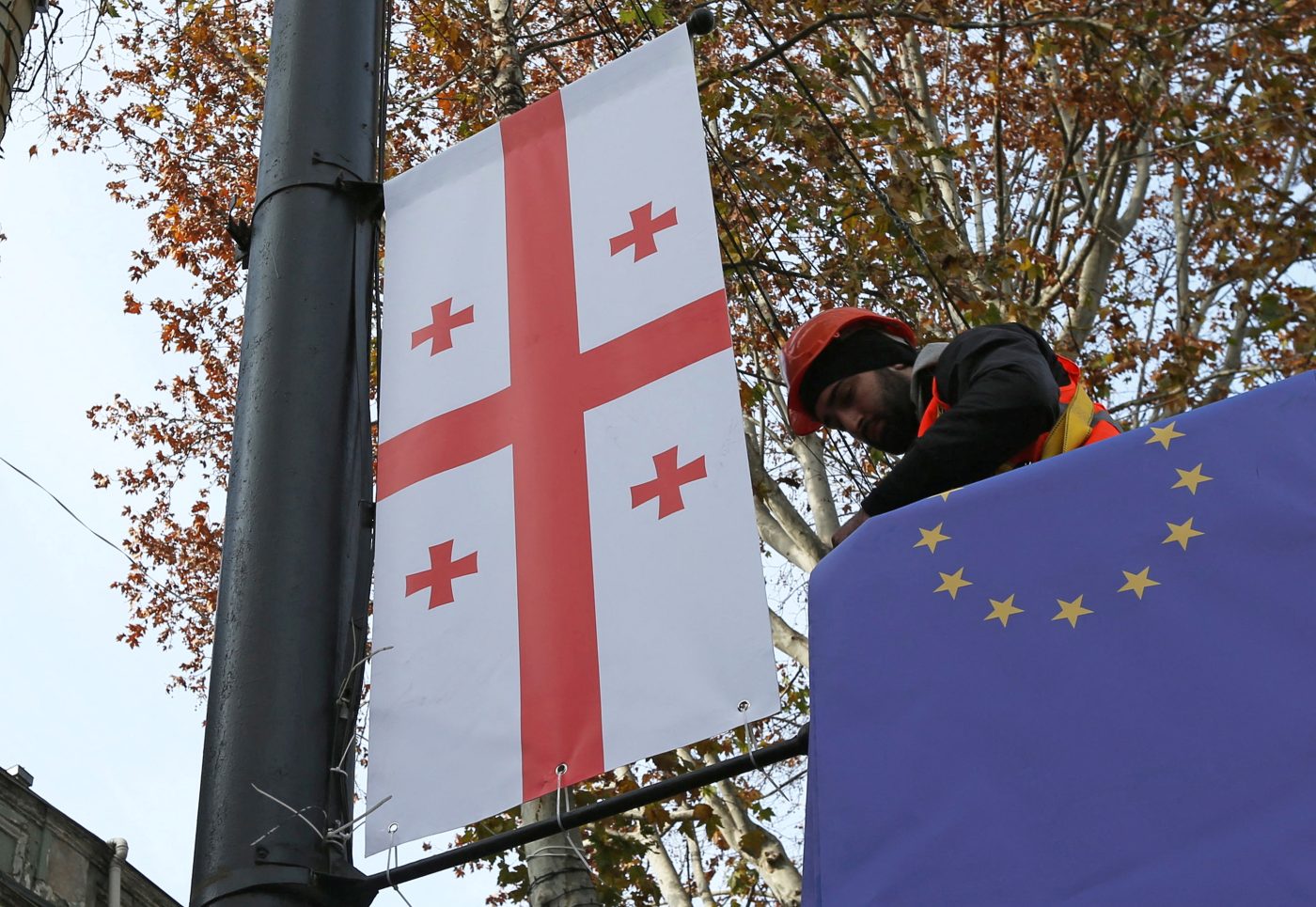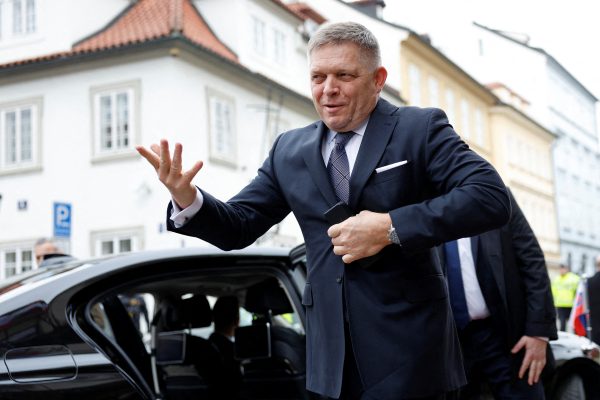The European Council’s historic December 14 decision to grant European Union (EU) candidate status to Georgia came as a huge relief to the country’s strongly pro-Western population and makes clear it is on the path to membership of Europe’s best and biggest economic club.
It has been a long time coming. The European project of Georgia’s foreign policy was conceived after the collapse of the Soviet Union in the late 20th century and harkened back to a tradition of medieval Georgian kings who sought close contact with fellow Christian European monarchs. To Georgians, candidate status seems a fair decision.
It also means that the insinuations about the EU abandoning Georgia in 2022 by only giving it a European “perspective” were wrong.
Despite this, relations between Brussels and Tbilisi are far from harmonious. Indeed, though there were fanfares and overwhelming public rejoicing in Tbilisi and other cities, tensions with the EU will certainly re-emerge in the coming years over differences on how to implement the required reforms.
The EU still expects Georgia to fulfill nine major conditions that would allow the country to move to the next stage — accession talks.
From a broader perspective, the decision is also a part of the battle for geopolitical influence in the region where Russia hopes to rebuild its flagging influence, while the EU (and the West in general) seek to prevent it. An EU refusal to bring Georgia under its wing risked losing a vital corridor through the South Caucasus and would have sent a devastating message to Armenia and others that the West is unwilling to play a serious role in the region.
It also will also be interesting to see what Georgia’s candidate status means for Russia. True, the Kremlin has said little in public about the EU’s expansion, and instead mostly focuses on NATO enlargement as a perceived threat.
Yet it was Ukraine’s association with the EU in 2013-2014, not NATO expansion, that provided Putin’s regime with the pretext to annex Crimea and invade Eastern Ukraine. The EU is despised by Russia no less than NATO, which puts significant pressure on Georgia when it comes to maintaining a balance in the country’s foreign policy. After all, if Georgia again engages in hostilities with Russia, as in 2008, Western aid is far from guaranteed.
That is one reason why any hopes of a more pro-Western foreign policy are likely to be disappointed. Although it remains to be seen what approach Tbilisi will choose, it is highly likely that the country will stick to what might be called a multi-vector foreign policy.
Some elements of this have already been seen — as when Georgia and China drew closer in July through the signing of a strategic cooperation agreement. To this can be added Georgia’s goal of stabilizing ties with Russia, for example by refusing to join EU sanctions on the Kremlin.
Candidate status will also shift the political dynamics in Georgia. Opposition groups have been in disarray for quite some time, but the EU decision will only accelerate the process by strengthening the ruling party’s position.
Indeed, the US non-profit National Democratic Institute recently released latest polls showing the biggest opposition party — the United National Movement (UNM) — with only 4% support, the lowest number since it became an opposition force in 2012. This is an important development as it will essentially seal the ruling party, Georgian Dream’s victory in the parliamentary elections in October.
Georgian Dream has far from overwhelming backing; it registers just 19% according to the same polls, but the political landscape is nevertheless becoming increasingly dominated by a single party that possesses all necessary resources to remain in power. The survey showed the winner of the question “Which party is closest to you?“, was “no party” with 47%.
The opposition will continue to lack the finances and most of all competent leaders capable of attracting large swathes of an increasingly politically apathetic population. A disaffected public may signal its feelings by staying at home — about 57% voted in the first round of voting in 2020, and just 26% in the second round.
If anything, EU candidate status is likely to boost the Georgian Dream. It will argue that its policies have paid off and that the advance toward EU integration is its victory. The party’s domination will be the single most important and challenging development for Georgia in the second half of the 2020s, raising the stakes in its relations with the EU and very likely creating grievances and mutual distrust.
Emil Avdaliani is a professor of international relations at the European University in Tbilisi, Georgia, and a scholar of Silk Roads.
Europe’s Edge is CEPA’s online journal covering critical topics on the foreign policy docket across Europe and North America. All opinions are those of the author and do not necessarily represent the position or views of the institutions they represent or the Center for European Policy Analysis.





